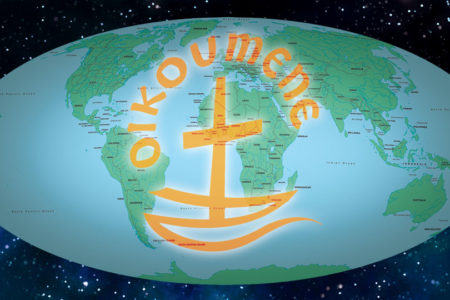The Grace of God Part Two
As we have seen, the two key Old Testament words for “grace” are hanan and hen. The Hebrew verb related to grace is hanan.1 In one form, it means “be gracious” or “show favor.”2 In another, it means “seek favor.”3 It always refers to “active acceptance and active favor.”4 And it always expresses a “positive” attitude of favor toward a person.5
The Hebrew noun counterpart is hen.6 It has two basic meanings: “grace” and “favor.”7 The word favor refers to “the positive disposition” one person has toward another.8 The noun hen can also mean “respect.”9 For example, Proverbs 28:23 refers to a man finding “more favor.” The noun “appears most often in the familiar” expression “find favor in someone’s eyes.”10 Another Hebrew word most often translated “favor” is panim, which means “face.”11
Another word related to “favor” or “grace” is the verb pana, which means “turn.”12 The fact that the verb pana is related to the noun panim, which means “face,” indicates God is asked to “turn and show His face (in mercy or kindness).”13 Thus “to show one’s face means to be favorably disposed toward a person.”14
God’s Declaration of His Gracious Nature
After the people of Israel had committed the grievous sin of making and worshiping the golden calf while Moses was on Mount Sinai with God, God threatened to destroy them but then relented (Ex. 32:1–14). Later He revealed He could make that decision because He is “The Lᴏʀᴅ, the Lᴏʀᴅ God, merciful and gracious, longsuffering, and abounding in goodness and truth” (34:6).
God’s Sovereign Control Over His Administration of Grace
After Moses earnestly begged God to show him His glory, God said, “I will make all My goodness pass before you, and I will proclaim the name of the Lᴏʀᴅ before you. I will be gracious to whom I will be gracious, and I will have compassion on whom I will have compassion” (33:19). God thereby asserted He alone determines and controls the administration of His grace.
Old Testament Examples of God’s Grace
God’s Grace for Noah. Between the Fall of Man and the days of Noah, people became progressively perverted. When God looked at mankind during Noah’s lifetime, He “saw that the wickedness of man was great in the earth, and that every intent of the thoughts of [everyone’s] heart was only evil continually” (Gen. 6:5). As a result, the earth was filled with corruption and violence (vv. 11–13).
This condition was so intense and widespread “the Lᴏʀᴅ was sorry that He had made man on the earth, and He was grieved in His heart” (v. 6). Thus God determined to “destroy man” and many land animals and “birds of the air” through a worldwide flood (v. 7).
By contrast, “Noah found grace in the eyes of the Lᴏʀᴅ” (v. 8). God determined to favor Noah and his family by preventing them from being destroyed with the rest of humanity because “Noah was a just man, perfect in his generations,” and Noah “walked with God” (v. 9; cf. Ezek. 14:14).
God gave Noah and his family specific instructions for building and occupying an ark to preserve their lives from perishing in the flood (Gen. 6:14–21).
God’s Grace for Joseph. Because the wife of Joseph’s Egyptian master falsely accused him of trying to have an illicit relationship with her, Joseph was thrown into prison (39:1–20):
But the Lᴏʀᴅ was with Joseph and showed him mercy, and He gave him favor in the sight of the keeper of the prison. And the keeper of the prison committed to Joseph’s hand all the prisoners who were in the prison; whatever they did there, it was his doing. The keeper of the prison did not look into anything that was under Joseph’s authority, because the Lᴏʀᴅ was with him; and whatever he did, the Lᴏʀᴅ made it prosper (vv. 21–23).
God’s Grace for Benjamin. Because Joseph had been in Egypt apart from his family for many years, he had not seen his younger brother, Benjamin, for a long time. When he finally had opportunity to speak to Benjamin after the long separation, he said to him, “God be gracious to you, my son” (43:29).
God’s Grace for a Man Who Has Lost His Garment. When God gave His law to Israel through Moses, He told the Israelites, “If you ever take your neighbor’s garment as a pledge, you shall return it to him before the sun goes down. For that is his only covering, it is his garment for his skin. What will he sleep in? And it will be that when he cries to Me, I will hear, for I am gracious” (Ex. 22:26–27).
God’s Grace for Moses. When God commanded Moses to lead the people of Israel from Mount Sinai to the land He had promised to give them, Moses reminded God that He had said to him, “I know you by name, and you have also found grace in My sight” (33:12). Then Moses said to God, “Now therefore, I pray, if I have found grace in Your sight, show me now Your way, that I may know You and that I may find grace in Your sight. And consider that this nation is Your people” (v. 13). God said to Moses, “My Presence will go with you, and I will give you rest” (v. 14).
Then Moses asked God, “For how then will it be known that Your people and I have found grace in Your sight, except You go with us? So we shall be separate, Your people and I, from all the people who are upon the face of the earth” (v. 16). “So the Lᴏʀᴅ said to Moses, ‘I will also do this thing that you have spoken; for you have found grace in My sight, and I know you by name’” (v. 17).
God’s Instruction for Israel’s Priests. God told Moses,
Speak to Aaron and his sons, saying, “This is the way you shall bless the children of Israel. Say to them: ‘The Lᴏʀᴅ bless you and keep you; the Lᴏʀᴅ make His face shine upon you, and be gracious to you; the Lᴏʀᴅ lift up His countenance upon you, and give you peace’” (Num. 6:23–26).
God’s Grace for Gideon. During the time of the judges, Israel was sometimes oppressed by the Midianites because of its disobedience to God (Jud. 6:1–2). The Israelites became so impoverished through this oppression that they cried out to God (v. 6). In response, God spoke to an Israelite named Gideon while he was threshing wheat: “Go in this might of yours, and you shall save Israel from the hand of the Midianites. Have I not sent you?” (v. 14).
Gideon responded, “How can I save Israel? Indeed my clan is the weakest in Manasseh, and I am the least in my father’s house” (v. 15).
God answered, “Surely I will be with you, and you shall defeat the Midianites as one man” (v. 16).
Gideon said, “If now I have found favor in Your sight, then show me a sign that it is You who talk with me” (v. 17). He was asking for God’s grace.
David and God’s Grace. After the child who King David fathered illegitimately through Bathsheba died, David said, “While the child was alive, I fasted and wept; for I said, ‘Who can tell whether the Lᴏʀᴅ will be gracious to me, that the child may live?’” (2 Sam. 12:22). David’s statement demonstrates God has authority to withhold His grace when it suits His sovereign purpose.
God’s Grace for the Northern Kingdom of Israel. God allowed Hazael, the king of Syria, to oppress the northern kingdom of Israel all the days of Jehoahaz, the northern kingdom’s evil king. “But the Lᴏʀᴅ was gracious” to the people of the northern kingdom, “had compassion on them, and regarded them, because of His covenant with Abraham, Isaac, and Jacob, and would not yet destroy them or cast them from His presence” (2 Ki. 13:22–23).
The Prospect of God’s Future Grace and Mercy for the Southern Kingdom of Judah. God said He would be gracious to the people of Judah if its people returned to Him. When Assyria was a threat to the southern kingdom as a result of Judah’s spiritual decline, the prophet Isaiah declared to the people of Judah,
For thus says the Lord Gᴏᴅ, the Holy One of Israel: “In returning and rest you shall be saved; in quietness and confidence shall be your strength.” But you would not, and you said, “No, for we will flee on horses”—therefore you shall flee! And, “We will ride on swift horses”—therefore those who pursue you shall be swift! One thousand shall flee at the threat of one, at the threat of five you shall flee, till you are left as a pole on top of a mountain and as a banner on a hill. Therefore the Lᴏʀᴅ will wait, that He may be gracious to you; and therefore He will be exalted, that He may have mercy on you. For the Lᴏʀᴅ is a God of justice; blessed are all those who wait for Him. For the people shall dwell in Zion at Jerusalem; you shall weep no more. He will be very gracious to you at the sound of your cry; when He hears it, He will answer you (Isa. 30:15–19).
ENDNOTES
- D. N. Freedman and J. R. Lundmon, “hanan, hen,” Theological Dictionary of the Old Testament, eds. G. Johannes Botterweck and Helmer Ringgren, trans. David E. Green, translated from Theologisches Worterbuch zum Alten Testament (Grand Rapids, MI: Eerdmans, 1986), 5:22.
- Ibid., 23.
- Ibid.
- Ibid., 24.
- Ibid.
- Ibid., 22.
- Ibid., 24.
- Ibid.
- Ibid.
- Ibid.
- Ibid.
- Ibid.
- Ibid.
- Ibid.







